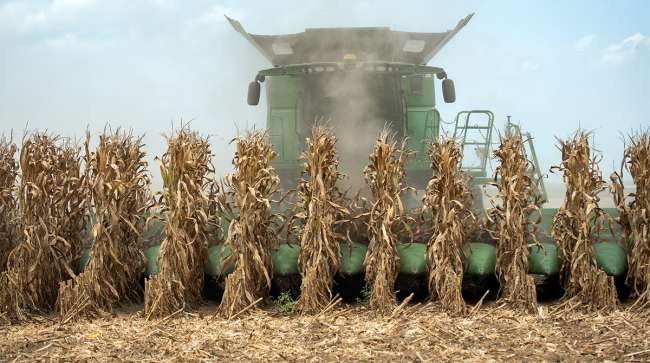Bloomberg News
USDA Seeks Easier Rules for Crops to be Used in Green Fuels

[Stay on top of transportation news: Get TTNews in your inbox.]
The U.S. Department of Agriculture is pushing for eased tax credit requirements regarding crops used as ingredients in the production of renewable fuels, according to Secretary Tom Vilsack.
Current guidance on a subsidy aimed at encouraging production of sustainable aviation fuel — which can be made from ingredients including corn-based ethanol and soybean oil — requires U.S. farmers to adopt a bundling of practices that include the planting of cover crops during the off season and no-till farming.
Producers say such demands are sometimes impractical.
The biofuels industry is awaiting guidance from the Treasury Department on the so-called 45Z clean fuel credit under President Joe Biden’s landmark climate legislation.

Vilsack
The subsidy will take effect in January.
The USDA is working on a proposal with the aim of giving farmers flexibility to “choose from a menu of activities and actions” under the new rules, Vilsack said during an ethanol conference in Nebraska. Another goal is to make sure that crops potentially benefiting from the new subsidies are not restricted to corn and soybeans, which are dominant in the U.S. farm belt, he added.
Producers of U.S. ethanol and the corn used to make it are worried that if the U.S. Treasury sticks to its current guidance for the upcoming credit, they won’t be able to participate meaningfully in the growing market for sustainable aviation fuel.
Vilsack on Aug. 15 also warned against a push to prevent U.S. biofuels made with foreign ingredients from reaping the benefits of the 45Z tax credit, saying it could hurt American trade.
“If every country does this, then there’s no trade,” he said. “If there’s no trade, then what do we do with the 20% to 30% of the crops we are currently selling overseas? What would that do to prices?”
Want more news? Listen to today's daily briefing below or go here for more info:




